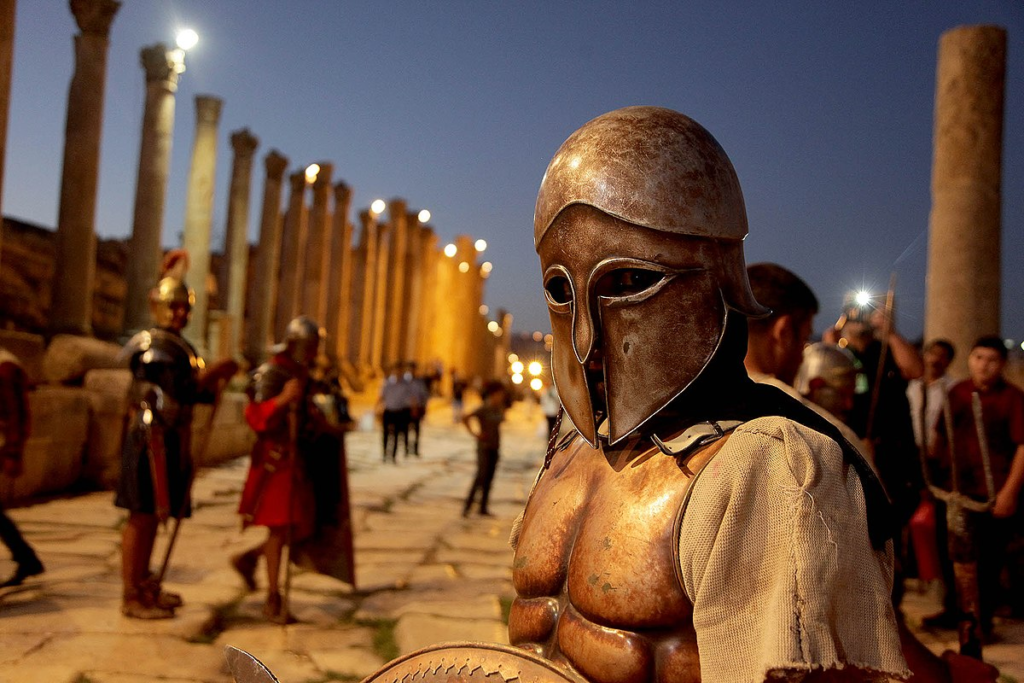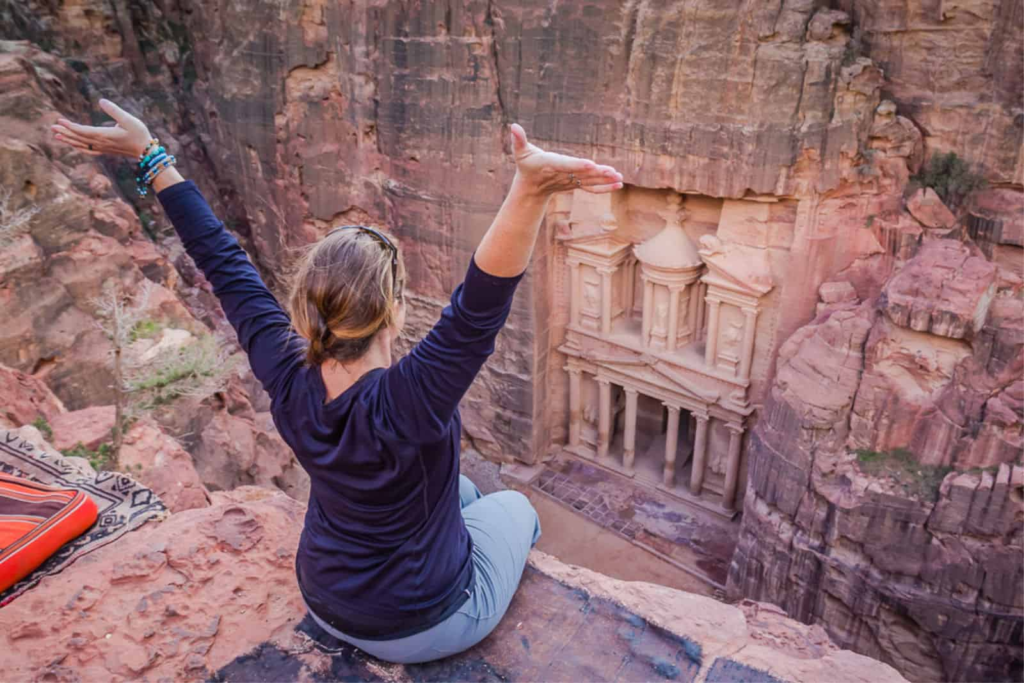Jordan, a land of ancient history and stunning landscapes, offers travelers an experience rich in culture and hospitality. From the rose-red city of Petra to the vast desert of Wadi Rum, Jordan is a country that invites exploration. However, like any destination, there are important things to know before visiting, especially for first-time travelers. This guide will walk you through everything from cultural norms to safety tips, ensuring that your trip to Jordan is as smooth and enjoyable as possible.
1.Safety and Political Sensitivity

Jordan is one of the safest countries in the Middle East, with a relatively low crime rate. However, it’s important to stay informed about the regional political climate, especially the ongoing tensions with neighboring “Israel”. While relations between Jordan and “Israel” are officially peaceful, the situation can be sensitive, and it’s advisable to avoid discussing politics, especially in public or with strangers.
Regarding scams, be cautious when dealing with street vendors or taxi drivers. Some may try to overcharge tourists, so it’s wise to agree on a price before accepting a service. In particular, be wary of anyone offering you deals that seem too good to be true or trying to lead you to a specific shop. These could be signs of a scam where you’ll end up paying much more than you intended.
2. Understanding Jordanian Culture

Jordan is a predominantly Muslim country, and as such, it’s important to be mindful of local customs and traditions. Modesty in dress is highly appreciated, especially for women. While Amman and other tourist areas are more relaxed, it’s respectful to cover your shoulders, knees, and avoid revealing clothing when visiting religious sites or rural areas.
When greeting someone, a handshake is common, but be aware that physical contact between men and women who are not related can be considered inappropriate. Always use your right hand for eating, greeting, or handing over money, as the left hand is considered unclean.
3. Visa Requirements

Before you even set foot in Jordan, it’s crucial to understand the visa requirements. Citizens of most countries can obtain a visa on arrival at Queen Alia International Airport in Amman or at land border crossings. The visa fee is approximately 40 JOD (around $56 USD), and it is valid for 30 days. However, to save time and potentially some money, consider purchasing the Jordan Pass before your trip. The Jordan Pass waives the visa fee if you stay for at least three nights and grants entry to over 40 attractions, including Petra. This is particularly useful as the entry fee to Petra alone can be quite high.
4. Health and Hygiene Considerations

Before traveling to Jordan, ensure that your routine vaccinations are up to date. It’s also advisable to get vaccinated against hepatitis A and B, typhoid, and rabies if you plan to visit rural areas or interact with animals.
The tap water in Jordan is not safe to drink, so always opt for bottled water, which is widely available. When eating out, stick to well-established restaurants, and avoid street food if you have a sensitive stomach. Traveler’s diarrhea is common, so it’s wise to pack some over-the-counter medication just in case.
5. Currency and Budgeting Tips

The currency in Jordan is the Jordanian Dinar (JOD), often referred to as “JD”. Credit cards are widely accepted in major hotels and restaurants, but it’s always good to carry some cash for small purchases or in areas where card payment might not be available. ATMs are common in cities, and most of them accept international cards.
Jordan is not the cheapest destination in the Middle East. According to Numbeo, the average daily budget for a traveler can range from $50 to $150 USD, depending on your travel style. Entrance fees to major attractions can add up, especially in Petra, where a one-day pass costs around 50 JOD ($70 USD). The Jordan Pass can help offset these costs, so it’s worth considering.
6. Transportation

Public transportation in Jordan is limited, and most travelers opt for taxis, rental cars, or organized tours. If you choose to drive, be aware that traffic in cities like Amman can be chaotic, and road signs are often in Arabic. However, driving gives you the flexibility to explore at your own pace, especially if you’re visiting remote areas like Wadi Rum.
Taxis are a common mode of transport in cities, but make sure the driver uses the meter. If there’s no meter, agree on a fare before starting your journey. For long-distance travel, shared taxis or buses are available, but they can be uncomfortable and slow.
7. Respecting Religious Practices

Jordan is home to a significant Christian minority, but the majority of the population is Muslim. During the holy month of Ramadan, Muslims fast from sunrise to sunset. While non-Muslims are not expected to fast, it is respectful to avoid eating, drinking, or smoking in public during daylight hours. Many restaurants may be closed or only offer limited service during this time, though tourist areas will still have options available.
8. Communication

The official language of Jordan is Arabic, but English is widely spoken, especially in tourist areas. Learning a few basic Arabic phrases can go a long way in showing respect to the locals and enhancing your travel experience. Phrases like “Shukran” (Thank you) and “As-salamu alaykum” (Peace be upon you) are commonly used and appreciated.
If you find yourself in need of assistance, Jordanians are known for their hospitality and will often go out of their way to help you, even if language barriers exist. However, always remain polite and patient, as misunderstandings can happen.
9. Climate and Best Time to Visit

Jordan has a diverse climate, with hot, dry summers and cooler, wet winters. The best time to visit is during the spring (March to May) or autumn (September to November) when the weather is mild, and the landscapes are lush. Summer temperatures can soar above 40°C (104°F), particularly in the Jordan Valley and Wadi Rum, making outdoor activities uncomfortable during the midday heat.
If you’re planning to visit Petra, it’s advisable to go early in the morning or late in the afternoon to avoid the heat and the crowds. The same applies to exploring Wadi Rum, where the desert can be scorching during the day but freezing at night.
10. Scams and How to Avoid Them

While Jordan is generally safe for travelers, there are a few scams to watch out for. One common scam involves taxi drivers who refuse to use the meter, instead quoting inflated prices at the end of the journey. To avoid this, insist on using the meter or negotiate the fare upfront.
Another scam occurs at tourist sites, where individuals may offer to guide you for free, only to demand payment afterward. Always clarify if a service is free or if there is a fee involved before accepting any help.
Additionally, some street vendors may try to sell counterfeit goods or overpriced souvenirs. It’s best to shop at reputable stores or markets, and don’t be afraid to haggle – bargaining is part of the culture in Jordan.
Final Thoughts
Traveling to Jordan for the first time can be an unforgettable experience filled with history, culture, and natural beauty. By understanding the local customs, being aware of potential scams, and respecting the political sensitivities, you’ll be well-prepared to enjoy all that this remarkable country has to offer. Whether you’re exploring the ancient ruins of Petra, floating in the Dead Sea, or trekking through the desert landscapes of Wadi Rum, these tips will help ensure your trip is safe, enjoyable, and memorable.
Remember, Jordan is a country that thrives on hospitality. The warmth of the Jordanian people will undoubtedly leave a lasting impression, making your visit not just a trip, but a journey into the heart of the Middle East.









